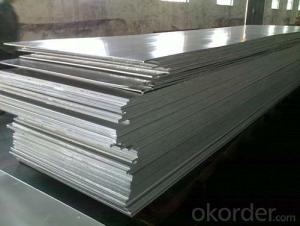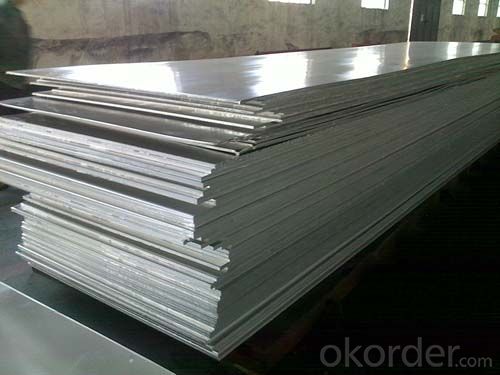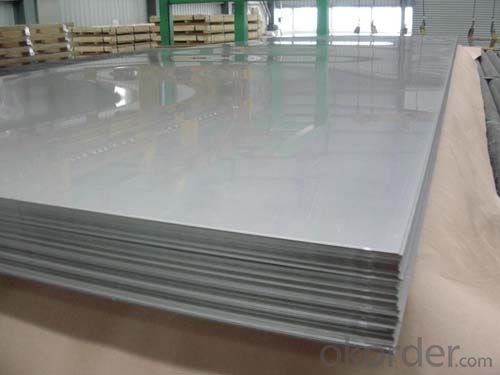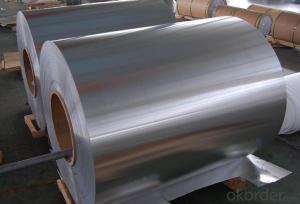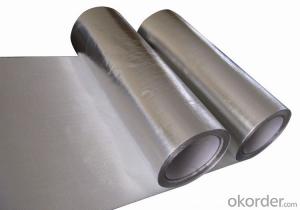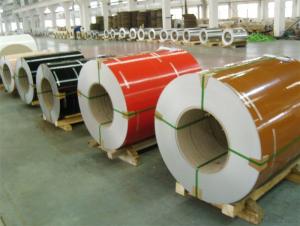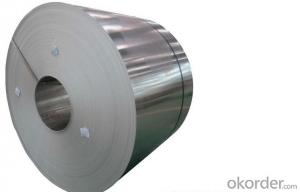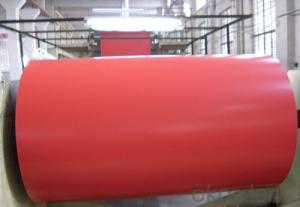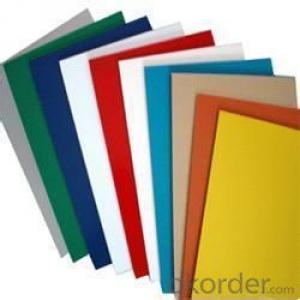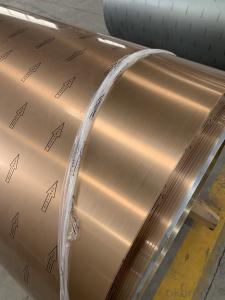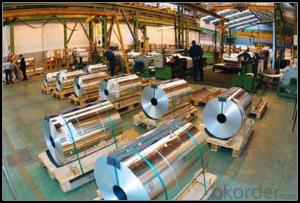Aluminum Coil Anodizing Company - Thick Aluminium Anodized Sheet for Different Usages
- Loading Port:
- China main port
- Payment Terms:
- TT OR LC
- Min Order Qty:
- 5 m.t.
- Supply Capability:
- 5000 m.t./month
OKorder Service Pledge
OKorder Financial Service
You Might Also Like
Specification
1. Description of Thick Aluminium Anodized Sheet for Different Usages
| Alloy No. | Thickness (mm) | Width (mm) | Length (mm) | Temper | |
| A1050,A1060, A1070,A1100 | 0.2-100 | 20-2200 | 20-8000 | O,H12,H22,H14,H16,H18, H24,H26,etc | |
| A3003,A3105,A3004 | 0.2-100 | 20-2200 | 20-8000 | O,H14,H18,H24,etc | |
| A5052 ,A5005,A5083,A5754 | 0.2-100 | 20-2200 | 20-8000 | O,H18,H24,H32,H34,H111,H112 ,etc | |
| A6061,A6082,A6063 | 0.2-200 | 20-2200 | 20-8000 | T4,T6, T651,etc | |
| A8011 | 0.2-100 | 20-2200 | 20-8000 | O,H12,H22,H14,H16,H18,H24,H26, etc | |
| Packing : Export wooden pallets. The bundle wegiht not exceed 2MT. Loading:by 1x20GP, 1X20GP can load about 18MT | |||||
| Standards:ASTM-B209. EN573-1, GB/T3880.1-2006 | |||||
| Quality of material: totally free from defects like white rust, oil patches, roll marks, edge damage, camber, dents, holes, break lines, scratches and free from coil set | |||||
2. Application of Thick Aluminium Anodized Sheet for Different Usages
Mainly used insigns, billboards, building exterior decoration, bus body, high-rise buildings and factories wall decoration, kitchen sink, lamp, fan leaves, with pieces of electronic, chemical equipment, sheet metal processing parts, deep drawing or spinning hollowware, welding parts, heat exchangers, bell surface and disk, plate, kitchenware, decorations, reflective devices, ect
3. Feature of Thick Aluminium Anodized Sheet for Different Usages
1.High temperature resistant
2.Weathering resistant
3.Scrubbing resistant
4.Sound insulation
5.Acid or alkali proof
6. Fireproof
7.Light weight material is easy to construct and install
4. Certificate:
SGS and ROHS(if client request, paid by client), MTC(plant provided), Certificate of Origin(FORM A, FORM E, CO), Bureau Veritas and SGS (if client request, paid by client), CIQS certificate
5. Image of Thick Aluminium Anodized Sheet for Different Usages
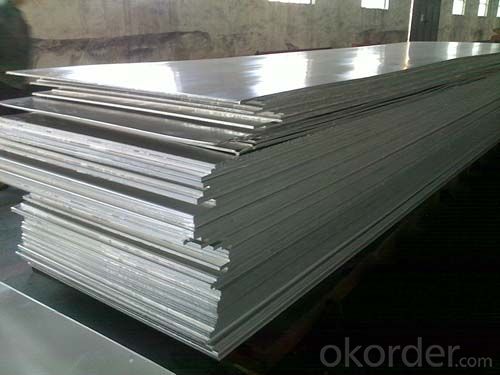
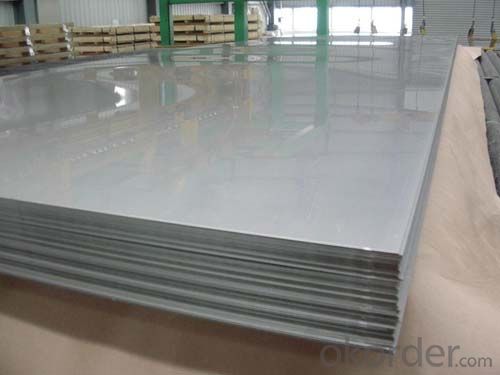
5. FAQ
1) What is the delivery time?
Dpends on actual order, around 20 days
2) What is the QC system:
We have QC staff of 20 persons and advanced equipment, each production is with MTC traced from Aluminum ingot lot.
3) What market do you mainly sell to?
Australia, America, Asia, Middle East, Western Europe, Africa etc
- Q: What is the process of manufacturing aluminum coils?
- The process of manufacturing aluminum coils involves several steps. First, raw aluminum is obtained from bauxite ore through a mining and refining process. The refined aluminum is then melted in large furnaces and cast into ingots or billets. These ingots are then rolled into thin sheets or strips using a rolling mill. The sheets are further processed by annealing, which involves heating and cooling to enhance the material's properties. The annealed sheets are then rolled again to achieve the desired thickness and shape, forming coils. The coils may undergo additional treatments like coating, polishing, or embossing depending on their intended application. Finally, the coils are inspected for quality and cut into specific lengths before being packaged for shipment to various industries that utilize aluminum in their manufacturing processes.
- Q: What are the unique considerations or safety measures to be aware of when using aluminum wire in welding?
- <p>When using aluminum wire in a welding process, special precautions include ensuring proper ventilation to avoid inhaling aluminum fumes, which can be harmful. Use the correct polarity and amperage settings on your welding machine, as aluminum requires direct current electrode negative (DCEN) for most processes. Clean the aluminum surface thoroughly to remove any oxides or contaminants that can affect the weld quality. Protect the aluminum from atmospheric contamination with a shielding gas, typically argon or a mixture, during the welding process. Be cautious of the high thermal conductivity of aluminum, which can lead to faster heat dissipation and may require adjustments in welding technique or parameters.</p>
- Q: What is the difference between aluminum coils and aluminum sheets?
- The main difference between aluminum coils and aluminum sheets lies in their form and application. Aluminum coils are long, continuous rolls of aluminum that are typically used in the manufacturing industry for various purposes such as roofing, insulation, and transportation. On the other hand, aluminum sheets are flat, thin pieces of aluminum commonly used in construction, aerospace, and automotive industries for applications that require a solid and stable surface. While both are made of aluminum, their physical form and intended use distinguish coils from sheets.
- Q: What are the different coil slitting widths available for aluminum coils?
- The specific requirements and industry standards determine the various coil slitting widths available for aluminum coils. The width range for slitting aluminum coils can vary from as narrow as 0.5 inches to as wide as 72 inches or more. The coil slitting facility's equipment and capabilities determine the exact range of available widths. These widths are tailored for different applications and industries, including automotive, construction, packaging, and electronics. Common coil slitting widths for aluminum coils are 12 inches, 24 inches, 36 inches, and 48 inches. However, it is essential to note that custom slitting widths can be requested to meet unique project needs.
- Q: i have received an aluminium cooker,it's in good condition but the outside is discoloured by oil splatters.The body is round ,i have used baking soda+vineger( mix with water and boil for an hour) to clean the insides,it came off clean but outside i have no clue. used a lot of elbow grease,my hands are paining now..i have this thing for gleaming utensils ,any suggestions with homemade things,don't want to buy anything
- To clean discolored aluminum you can also heat 2 teaspoons cream of tarter per quart of water. It would be best to let the cooker soak in the mixture, but that might be difficult depending on the size of your cooker. Lemon juice or lime juice should also help because they have citric acid. You could cut a lemon in half and rub the halves on the cooker, then try scrubbing with something that has some texture to it (rough sponge or steel wool). The try the vinegar or cream of tarter mixture again. Whatever you use, don't try bleach as it is highly alkaline and dissolves aluminum. This leaves copper deposits can make it turn black.
- Q: Are there any limitations on the anodizing of aluminum coils?
- Yes, there are certain limitations on the anodizing of aluminum coils. Some of the limitations include the size and thickness of the coils, as well as the surface finish and quality of the aluminum. Additionally, the composition and alloy of the aluminum can also affect the anodizing process. It is important to consider these limitations to ensure successful and satisfactory anodizing results.
- Q: What are the differences among various types of steel wires and their respective coiling techniques?
- <p>Yes, there are differences between different types of steel wires and their coiling methods. Steel wires can be categorized based on their composition, strength, and use, such as carbon steel, stainless steel, and alloy steel wires. Each type has unique properties that affect their coiling methods. For instance, carbon steel wires are strong and ductile, suitable for standard coiling techniques, while stainless steel wires offer corrosion resistance and may require special handling to prevent damage. The coiling methods also vary; some common ones include spool coiling, loop coiling, and pancake coiling. Each method has specific applications and considerations for wire diameter, tension, and storage. Understanding these differences is crucial for selecting the appropriate wire and coiling technique for a given application.</p>
- Q: What are the various applications and purposes of aluminum coil in different industries?
- <p>Aluminum coil is widely used in numerous applications due to its lightweight, corrosion resistance, and high strength. It is commonly used in construction for roofing and siding, in the automotive industry for body panels and heat exchangers, and in the packaging industry for food and beverage cans. Aluminum coil is also utilized in electrical applications such as transformers and wiring, and in the manufacturing of everyday items like foil and cookware. Its versatility makes it a popular material in various industries.</p>
- Q: This question asks for the method to determine the weight of a steel coil.
- <p>To calculate the weight of a steel coil, you need to know its length, width, and thickness, as well as the density of the steel material. The formula to calculate the weight is: Weight = (Length 脳 Width 脳 Thickness) 脳 Density. The density of steel is approximately 7850 kg/m鲁. Convert the dimensions to meters if they are not already in that unit. Multiply the volume (length 脳 width 脳 thickness) by the density to get the weight in kilograms. For example, if a coil is 2 meters long, 1 meter wide, and 0.005 meters thick, its weight would be (2 脳 1 脳 0.005) 脳 7850 = 78.5 kg.</p>
- Q: Is it safe and practical to use aluminum coil in cooking processes?
- <p>Aluminum coil can be used for cooking, but it's important to consider the specific type and context. Aluminum foil, for example, is commonly used for cooking in various forms such as wrapping food for baking or grilling, or lining baking sheets to prevent sticking. However, aluminum cookware is less common due to concerns about aluminum's potential health effects and its reactivity with certain foods. When using aluminum coil for cooking, ensure it's food-grade and avoid using it with acidic or alkaline foods, as this can lead to leaching of aluminum into the food. Always check the manufacturer's guidelines for safe use.</p>
Send your message to us
Aluminum Coil Anodizing Company - Thick Aluminium Anodized Sheet for Different Usages
- Loading Port:
- China main port
- Payment Terms:
- TT OR LC
- Min Order Qty:
- 5 m.t.
- Supply Capability:
- 5000 m.t./month
OKorder Service Pledge
OKorder Financial Service
Similar products
Hot products
Hot Searches
Related keywords
